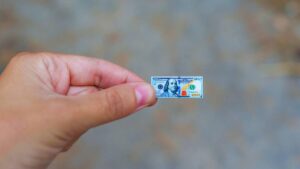Rare opportunities – ASX health stocks tackling unmet medical needs

These ASX stocks are leading the charge to treat rare diseases. Pic: Getty Images
- There are significant incentives for pharmaceutical companies to develop treatments for rare diseases
- Neurotech International is focused on paediatric neurological disorders where there is inflammation, including rare diseases
- Dimerix is focused on the rare kidney disease focal segmental glomerulosclerosis (FSGS)
Rare diseases have become an attractive target for pharmaceutical companies both in Australia and internationally with significant incentives for developing effective treatments for conditions affecting a small number of people.
Different jurisdictions have different classifications for what constitutes a rare disease. In Australia and the European Union a disease is considered rare if it affects fewer than five in 10,000 people, while in the US a disease is rare if it affects fewer than 200,000 people.
Petra Capital senior healthcare analyst Tanushree Jain told Stockhead the US Food and Drug Administration (FDA) oversees the Orphan Drug Act, which encourages the development of treatments for rare diseases with various incentives including extended market exclusivity, tax credits for R&D and faster regulatory approval in the world’s largest healthcare market.
Other jurisdictions including Europe also encourage and incentivise development of treatments for rare diseases.
“Smaller patient populations for rare diseases mean clinical trials are not as big and typically there are less trials needed to get regulatory approval therefore saving both time and costs for companies,” Jain said.
“The FDA is also showing a willingness to look at simpler evidence of efficacy for a drug to treat a rare disease, which can expedite its path to market.
“Orphan drugs are also excluded from drug pricing negotiations within the Inflation Reduction Act in the US, which is another reason a lot of the pharma players are increasingly looking to develop drugs for rare diseases.”
With various incentives and strong support from patient advocacy groups, ASX biotech companies have a compelling opportunity to bring breakthrough therapies for unmet medical needs to market. Here are some biotechs leading the charge in rare disease treatment.
Neurotech International (ASX:NTI)
The clinical-stage biopharmaceutical development company is focused predominantly on paediatric neurological disorders, where there is persistent neuroinflammation, including rare diseases.
Neurotech has completed a phase 1/2 trial of its lead oral cannabinoid drug NTI164 to treat Rett Syndrome, a rare genetic disorder that primarily affects girls and leads to severe cognitive and physical impairments.
Neurotech’s newly appointed CEO and managing director Dr Anthony Filippis said the US FDA has granted orphan drug designation (ODD) for NTI164 late last year and the company had filed for an ODD in Europe.
Neuren Pharmaceuticals became the first company in the world to develop a treatment for Rett Syndrome with trofinetide (marketed as DAYBUE) approved by the FDA in March 2023.
“There’s one approved drug in that disease and obviously a need for more therapies,” Filippis said.
“Our molecule NTI164 has just demonstrated positive results in our clinical study in Rett Syndrome.”
Filippis said there are a few factors which would determine why a company would pursue treatment for a particular disease including a market need for the drug, if there are other approved drugs and whether your drug is likely to be a treatment.
“We obviously have a drug that has demonstrated it works in paediatric neurological clinical trials,” he said.
Neuren Pharmaceuticals (ASX:NEU)
While Neuren has developed a strong pipeline of treatments for rare diseases. Along with trofinetide to treat Rett Syndrome, Neuren has developed its second drug candidate NNZ-2591, which is targeting rare paediatric conditions including Phelan-McDermid syndrome, Angelman syndrome and Pitt Hopkins syndrome.
Neuren recently announced alignment with the FDA had been reached regarding a single phase III trial for NNZ-2591 in Phelan-McDermid syndrome, with the same dose, population and duration as the phase II trial.
Negotiations with the FDA are continuing on the primary efficacy endpoints to be used in the trial. Neuren said it also planned to advance Pitt Hopkins syndrome and Angelman syndrome to phase III trials, subject to FDA consultation, following positive phase II trial results.
“At Neuren we are striving to have a groundbreaking impact on pediatric rare diseases that have thousands of patients with limited or no treatment options,” CEO and managing director Jon Pilcher told Stockhead.
“Regulatory flexibility, limited competition, attractive pricing, and additional protection against generics make it a very attractive business model for a lean entrepreneurial company.”
Mesoblast (ASX:MSB)
The dual Nasdaq-listed stem cell developer obtained FDA approval for its childhood graft-versus-host disease (GvHD) treatment Ryoncil (remestemcel-L) in December 2024.
Resulting from bone marrow transplants, GvHD is a life-threatening condition with high mortality rates.
In the US about 10,000 patients undergo a bone marrow transplant annually with donated tissue, 1500 of whom are children. About half of them will develop GvHD and 50% of these won’t respond to steroids.
Ryoncil applies to patients resistant to steroids, the standard-of-care treatment. Mesoblast said Ryoncil was the first FDA-approved therapy for children aged two months and older, including adolescents and teenagers, with SR-aGvHD.
“We are very pleased that the FDA has granted approval of Ryoncil and are proud of the company’s commitment to the GvHD community in bringing this important new treatment to children and families with no other acceptable options,” Mesoblast founder and CEO Dr Silviu Itescu said in the company’s announcement.
Mesoblast is also targeting the children’s disorder hypoplastic left heart syndrome, for which it has rare paediatric disease designation from the US FDA for its allogeneic cell therapy Revascor.
“Spectacular” results of a randomised trial of Revascor at the Boston Children’s Hospital showed an increase in the size and function of the children’s under-developed left ventricles.
“By doing that, we enabled a surgeon to create a permanent circulation by which the left ventricle supports the whole body,” Itescu told Stockhead.
Neurizon Therapeutics (ASX:NUZ)
Neurizon (formerly PharmAust) was granted ODD status from the FDA in May 2024 for its lead drug candidate NUZ-001, which is aimed at treating motor neurone disease (MND), also known as amyotrophic lateral sclerosis (ALS).
The European Medicines Agency (EMA) also granted orphan medicinal product designation (OMPD) for NUZ-001 – for the treatment of MND/ALS in December 2024.
Late last year the company released a positive interim update on its ongoing open-label extension (OLE) for NUZ-001, confirming its potential to be a transformative treatment for MND/ALS and other neurodegenerative diseases.
The OLE study follows the phase 1 MEND study and investigates the long-term safety, tolerability and efficacy of NUZ-001.
The company has submitted an IND application to the US FDA for its adaptive phase 2/3 trial in MND/ALS within the Healey ALS Platform Trial framework, a US program aimed at speeding up the assessment of new ALS treatments by evaluating several experimental drugs at once.
Neurizon said there was no cure for the ultimately fatal ALS/MND, marked by the gradual breakdown of nerve cells in the spinal cord and brain, impairing voluntary muscle control of the limbs, which can ultimately result in respiratory difficulties and death.
Dimerix (ASX:DXB)
Dimerix is focused on the rare kidney disease focal segmental glomerulosclerosis (FSGS) that damages filtering units of the kidneys, leading to permanent damage and eventual organ failure, often requiring dialysis or a transplant.
The company is forecasting the second interim analysis of its ACTION3 global phase III trial of lead drug DMX-200 to treat FSGS in around mid-CY25.
The phase III study is titled Angiotensin II Type 1 Receptor (AT1R) & Chemokine Receptor 2 (CCR2) Targets for Inflammatory Nephrosis – or ACTION3 for short.
With no approved treatments worldwide, options are limited for sufferers of FSGS.
DMX-200 has been granted ODD in the US and Europe, as well as the equivalent Innovative Licensing and Access Pathway (ILAP) designation in the UK.
At Stockhead, we tell it like it is. While Neurotech international, Neurizon Therapeutics and Dimerix are Stockhead advertisers, the companies did not sponsor this article.

SUBSCRIBE
Get the latest breaking news and stocks straight to your inbox.
It's free. Unsubscribe whenever you want.
By proceeding, you confirm you understand that we handle personal information in accordance with our Privacy Policy.








